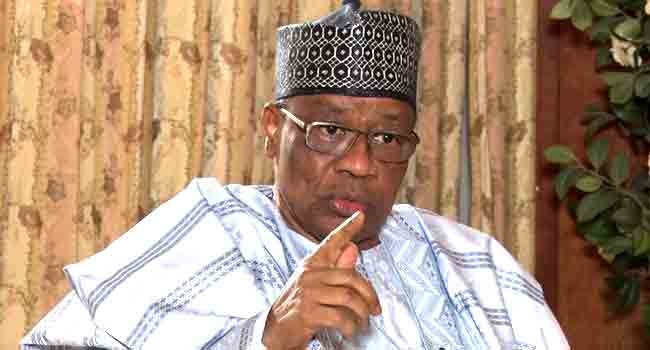
Gen. Ibrahim Badamasi Babangida, popularly known as IBB, did not go out of his way to victimise late Maj.-Gen. Mamman Vatsa during the military trial that directed execution of Vatsa.
Rtd Gen. Haliru Akilu, a former Director of National Intelligence and Director of Military Intelligence at various times in the 1990s, disclosed this on Thursday in Abuja.
Akilu said that the loyalty and empathy of IBB for especially his friends and family did not conform with the narrative about the role of the ex-head of State.
On March 5, 1986, Vatsa was executed by the military regime of IBB.
Vatsa, who was a childhood friend of IBB, was killed after a military tribunal conviction for treason associated with an abortive coup.
“When you know Gen. Babangida, you will understand that these narratives did not fit the picture. As the leader then, IBB had to follow the right process of the military trials of any act of treason and there are persons bestowed with that responsibility,” he said.
Akilu said that with time the various legacies of IBB would be brough out for the future generation to learn and understand that every Nigeria’s leader contributed immensely to national development.
“IBB laid solid infrastructural development for the Nation during his regime. We have that bringing the Federal Capital of the country back to Abuja. This was a great decision that only leaders of IBB’s capacity can do.
“The second is the building of military barracks in Abuja, the building of the National Assembly Complex, the Aso Rock Villa (State House), the Federal Secretariat as well as economic and social empowerment of Nigerians, especially women with the establishment of the Better Life for Rural Women as MAMSER.”
Similarly, Chief Emmanuel Iwuanyanwu, a politician and businessman, said the legacies of IBB must be given prominence through adequate information from the general in order to dispel the negative narrative about his regime.
He said the IBB he knows was a stateman that should be emulated by the young Nigerians in order to build a better Nation.
“Gen. Babangida is a detribalised Nigerian. Many examples abound were he showed his humility and concern to me and the Nation. During the burial of my father, he came in quietly for the burial that nobody recognised him and he stayed throughout the day with me.
“As a former soldier in the Biafra, Gen. Babangida didn’t show any difference to us after the war. We fought on opposing sides, but that did not make him to discriminate against us. We are good friends up till today. I met many people in business and politics through him.
“He is the most misrepresented leader in Nigeria because he is yet to write about himself by having his own side of the story on issues concerning his stewardship,” he said.
